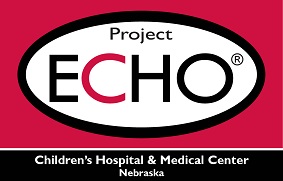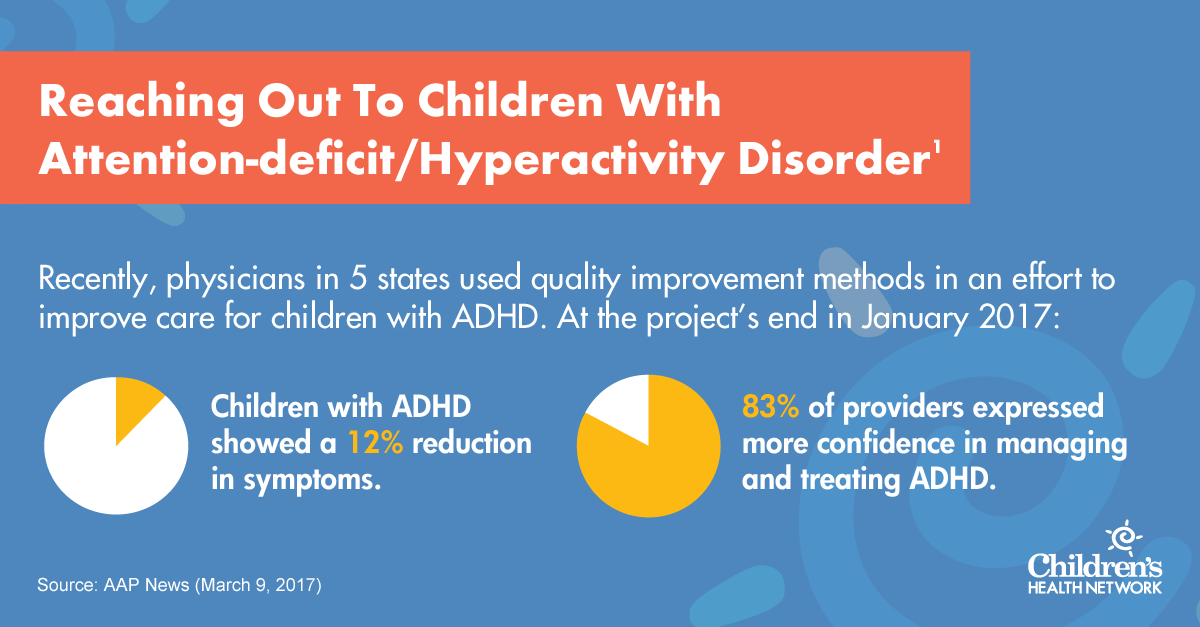For many years, pediatric research has not been at the forefront of clinical trials. The Nebraska Pediatric Clinical Trials Unit (NPCTU) aims to fill the hole and provide much-needed research in the field of pediatric medicine.
At Children’s Nebraska, Russell “Rusty” McCulloh, MD, has made clinical trials for pediatric research his mission. He is the Director of the NPCTU, and the Division Chief for Pediatric Hospital Medicine at Children’s and the University of Nebraska Medical Center.
Dr. McCulloh explains more about NPCTU and a trial that Children’s is participating in — Pharmacology of Understudied Drugs in Children (POPS Study).
Topic Breakdown
0:26 — What is the Nebraska Pediatric Clinical Trials Unit?
7:00 — Types of medications being studied at Children’s trial
10:55 — Addressing ethical concerns with children and clinical trials
15:38 — How to get patients and families involved in the study
Transcript
CHN News: Hello, everyone. Welcome to the CHN podcast.
We are speaking with Dr. Rusty McCulloh, who is the Director of the Nebraska Pediatric Clinical Trials Unit, and the Division Chief for Pediatric Hospital Medicine at Children’s Nebraska and the University of Nebraska Medical Center. Dr. McCulloh, thank you so much for here with us today.
Dr. McCulloh: Well, thank you so much for having me. It’s great to be here.
CHN News: In a nutshell, what is the Nebraska Pediatric Clinical Trials Unit?
Dr. McCulloh: The Nebraska Pediatric Clinical Trials Unit is a program funded by the National Institutes of Health whose objective is to extend clinical trials opportunities for children and their families in our region and to increase the ability of institutions in our region to develop conduct high-quality pediatric clinical research for the benefit of children and families in our community.
It is part of the Environmental Influences on Child Health Outcomes (ECHO) program that’s funded by the National Institutes of Health, whose overarching objective is to identify important and pragmatic ways to improve the healthy growth and development of children through better understanding of what influences the development of children in five general main areas.
These include: pediatric obesity; neurodevelopment (brain development and nervous system development); respiratory diseases and development; pre-, peri-, and post-natal exposure and outcomes — which includes anything from healthy pregnancies to safe deliveries to exposures that moms or infants can experience that impact their growth or development; and positive child health outcomes — which includes a variety of things ranging from the influence of technology on healthy brain development and behaviors to sleep hygiene.
CHN News: All of these things you’ve just mentioned are part of the ECHO program, correct?
Dr. McCulloh: That’s part of the ECHO program. Our piece of it — the Nebraska Pediatric Clinical Trials Unit — participates with 16 other states across the US in a clinical trials network called the IDeA States Pediatric Clinical Trials Network. The aim of this network is to identify and implement high-quality pediatric clinical trials to help ensure that the best treatments are available for children and their families from communities like ours and like the other states that are participating.
These states range all over the country. They are IDeA states — meaning that they participate in the Institutional Development Award program that the National Institutes of Health conducts.
These are states that don’t get as many federal dollars for research as their peer states. This way, we are supporting the development of high-quality researchers from within those states. So people who grow up in Nebraska have just as good a chance as folks who grow up in Illinois or Iowa or other non-IDeA states to pursue a career in scientific research and health sciences and health-related research.
These states include places like Alaska and Hawaii on the west coast to places like Vermont, New Hampshire, and South Carolina on the east coast, and then a bunch of states in the middle — including North Dakota, South Dakota, Nebraska, Kansas, Oklahoma. Lots of states — about ⅓ of the country — are participating in this network.
We’re focused on just a few clinical trials right now to help us get things started because we’ve only been around for the last 2 years or so. We’re building the car as we’re driving it, so to speak.
CHN News: And those 2 that you’re working on now are the POPS study and Vitamin D study?
Dr. McCulloh: Yes, and both of them are really great examples of clinical trials that are practical and can improve the lives of children and their families.
The POPS study — also called the Pharmacology of Understudied Drugs in Children study — focuses on improving our dosing of medicines that are commonly used in children. What I think is important to note is that 80% of all medicines that are used in children are used off-label, meaning that there’s not clear dosing guidance in the same way that there is for adults.
This means that what we’re providing in terms of the doses of medicines to children may not be the best fit for the treatment of the conditions. The analogy I give is: a newborn baby wears a certain size sock and an adult wears a certain size sock. No one would expect that the sock that fits a newborn baby would be the appropriate fit for an adult, so why would we expect that that adult sock should fit those children’s feet? And that’s the way that these medicines are: they’re the adult sock that we’re trying to put on that kid’s foot.
We participate with about 50 other sites across the country — and a few international sites. This project focuses on medicines that children are already taking — they’re not getting put on anything new — and we’re asking for a little blood sample to study the drug levels of the medicines they’re taking to see whether the dose they’re getting is the best dose for those medicines for them.
We don’t use any extra or experimental medicines. We’re looking at what we’re already doing and trying to improve that dosing.
The study had been going on long before we got involved — the last 10 years or so. And it’s helped change some of the labelings for certain medicines and it’s improved our understanding and our dosing for dozens of medicines over time: common things, like antibiotics, things like antiseizure medicines, blood pressure medicines — all sorts of things that kids get that if you give them the right fit, they’ll do much better.
CHN News: You mentioned blood pressure and seizure medications. There are so many different drugs and conditions that are being studied in the trial — are there any that are particularly being studied at Children’s right now?
Dr. McCulloh: There are a few that we’re looking at more closely at Children’s. A lot of the medicines that we’re focusing on have to do with safely putting a child to sleep for a procedure — so sedation medicines — particularly in young infants.
There are also some medicines where we’re looking at both the level of the medicine in the blood and also in the spinal fluid. For children who happen to be giving spinal fluid samples while on this medicine, we’re looking at those drugs as well. And those are typically antibiotics.
And the reason why that’s important is because — particularly for antibiotics — the level of the medicine in your blood, only a small fraction of that gets into your spinal fluid. So, having a better understanding of how much gets in there is really important to ensuring we give the right dose. Because that’s how we treat those severe bacterial infections that we require antibiotics: you give those antibiotics through the blood and then it gets filtered to the spinal fluid.
Ones that we’re looking at in the future are medicines used in children who undergo open-heart surgery — particularly babies who have to undergo open-heart surgery. As you can imagine, the research in that area is very slim because of how few of those babies at any one place in the country are experiencing those surgeries at any given time. So, we’ll be working on that as a focus. It’s good because the medicines that we use there — steroids — can help a lot with how children do after open-heart surgery.
We’re also looking at the use of steroids in premature infants as well. Those medicines often get used in the Neonatal Intensive Care Unit, so ensuring that we’re using the best doses there is really important to make sure these kids do as well as possible and benefit as much as possible from the medicines.
CHN News: Have you been able to use any of your research and results at Children’s so far?
Dr. McCulloh: Not yet. We just started work in this POPS study in the last 6 months or so and we’ve had a few folks enrolled. It takes time to have enough children enrolled in the study to have enough information to present out to change practices.
But we do have results that have gone into the larger study that will be used for future research publications that will help change guidance on dosing.
I think it’s important to note that one of the reasons that our network even exists is that most pediatric clinical trials don’t successfully enroll all of the children necessary to complete the clinical trial.
And not as many clinical trials get started in the first place for children because they’re more expensive to run, there are lots of differences in how children respond to medicines based on their age, and — unlike adults — there’s a much smaller market for those medicines. So, drug companies often don’t have as much of a financial interest to support that sort of research.
This is why 8 out of 10 drugs have not been studied robustly or fully in pediatric populations. So we have to go back and try to fix that.
CHN News: Are there more ethical concerns about doing clinical trials involving children?
Dr. McCulloh: they’re a bit different. For children under the age of 7 and those who don’t have decision-making capacity, their parents are essentially making the decision on their behalf whether or not to participate in that clinical trial.
And what goes into that decision-making is different for parents than if that parent was the research subject themselves. There’s a lot more interest in the benefit or how uncomfortable the study is going to be. Some parents have a lot of concern regarding comfort in participating in a clinical trial — more than they would potentially if they were participating or making the decision for themselves to participate.
When children are older and have some decision-making capacity, but are not yet adults, their perceptions of the study get taken into account as well.
So, it’s a different sort of consent process. Although what other researchers have found in surveying children and families is that there’s a strong desire to participate in clinical trials among children and families — particularly families with children who have chronic medical conditions — because it helps them better understand their own medical condition, and because it feels like they’re contributing toward a greater good. And that in and of itself can be therapeutic and provide benefit to the individual, even if the study they are participating in may not benefit them directly.
CHN News: You also mentioned that dosing changes by age. Do you follow these kids that you’re working with as they get older or do you take a one-time sample?
Dr. McCulloh: That’s a great question. The way that this study works is that, rather than try to follow the same child over many years, they recruit different age groups of children — about 25 kids for each of the age groups — and those age groups include young infants in the first few months of life, infants who are born premature, and then by clusters of years.
There are also special populations focused on children with obesity because obesity has an impact on where medicines go throughout your body. And also, [we have a special grouping for] children who are on a heart-lung machine — because those medicines often may stick to the plastic of the tubing — and these are some of the sickest patients.
So, making sure we get the right dosing for the sickest patients is super important for them as well. Not that it’s not important for everybody, but in this group, in particular, the risk of not getting the right dose may have a larger impact because of how sick they are.
CHN News: If they have multiple conditions or are on multiple types of medications, can they be in this trial or does it have to be someone who’s really just on one medication?
Dr. McCulloh: They can be on multiple medicines. They can even be on multiple medicines that are being focused on in the study as well. We obtain samples — with their permission — for each of the drugs of interest that they are on. There’s not a limitation from that standpoint. The only limitation is: are you on a medicine of interest already — because we don’t want to put you on any medicines — and are you in a right age category or medical condition category to participate in the study.
The study is pretty straightforward. For many of the children we see, they already have IV access, so we can get the blood without having to do a poke. For other children, we can do it with as small amount of blood as possible — like a finger poke, not having to put a needle in the vein.
CHN News: When you are working with kids who are on multiple medications, do you also get good information on drug interactions?
Dr. McCulloh: We do. It’s not a primary focus of the study, but we do get a lot of information about how those drugs may interact when they’re given at the same time. And that’s information that can be shared with people who are focused on improving on dosing or learning more about drug-drug interactions as they are developing new medicines.
CHN News: You’d mentioned some of the upcoming tests you’ll be doing at Children’s. Is there anything else on the horizon for this study?
Dr. McCulloh: The really good news is that the National Institutes of Health said this program has been so successful that they’re renewing it for another 8 years. We anticipate participating in this study for many years to come.
We also have the ability to propose new drugs of interest through the network with our participating researchers. There is always the opportunity for patients and families to make their voice heard and say, “These are medicines that are important to us and our community.”
We would love to hear more of that because I think the more input from the community on research a) the better people understand the process and b) the more trust there is in the process. It should be this cycle where we try to answer important questions based on what the community tells us is important — at least in part — and that we share what we find back to the community, so they understand what happened and what we learned.
The last piece is that for folks who are interested in learning more about the study, we do have it listed on the Nebraska Pediatric Clinical Trials Unit website, which has a lot of patient and family information. And folks can also express their interest if they sign up for the Nebraska Pediatric Participant Registry.
CHN News: And is this also where providers should go if they think they have a patient who might be interested in this?
Dr. McCulloh: Yes. I will say that we’re conducting the study right now at Children’s Nebraska and the clinics that are connected, and at the University of Nebraska Medical Center’s main campus — because there’s a bit of a time limit on when the blood sample has to be put in the freezer, so that we make sure we get accurate drug levels from that blood sample.
But absolutely, if folks are interested and they aren’t on those campuses, they can feel free to reach out if they’ve got some interest in learning more about the study.
CHN News: Can providers who are not a part of Children’s refer patients to Children’s for this study?
Dr. McCulloh: They can. That’s absolutely something we would be happy to talk about. We can obtain consent from a child and their family and obtain the blood sample here at Children’s with the help of our research coordinators.
CHN News: Dr. McCulloh, thank you so much for your time today, and for telling us more about the Nebraska Pediatric Clinical Trials Unit and the POPS Study.
Dr. McCulloh: Thanks for having me.
If you are interested in learning more about the Nebraska Pediatric Clinical Trials Unit, email Dr. McCulloh at [email protected].
 Talking to your teenager about anything beyond what’s for dinner or their weekend plans might feel like pulling teeth. From one-word responses to disinterested tones, plenty of parents feel as though their teens aren’t exactly open books. When it comes to more serious topics, such as body image and weight conversations, it can be even more challenging.
Talking to your teenager about anything beyond what’s for dinner or their weekend plans might feel like pulling teeth. From one-word responses to disinterested tones, plenty of parents feel as though their teens aren’t exactly open books. When it comes to more serious topics, such as body image and weight conversations, it can be even more challenging. The day has finally come — your child has expressed interest in using the toilet for the first time. Take a deep breath as you begin buying potty training accessories, searching for tips and getting excited about the money you’ll be saving on diapers.
The day has finally come — your child has expressed interest in using the toilet for the first time. Take a deep breath as you begin buying potty training accessories, searching for tips and getting excited about the money you’ll be saving on diapers. Long before your child utters their first word, they start communicating with you. From cries to squeals to cooing to even blowing raspberries, they’re experimenting with communication and, eventually, language. As you watch these language milestones unfold, it’s easy to get excited — but it’s also easy to become nervous. You might wonder if your child is achieving milestones at the right times, and you might look for ways to help nudge them along.
Long before your child utters their first word, they start communicating with you. From cries to squeals to cooing to even blowing raspberries, they’re experimenting with communication and, eventually, language. As you watch these language milestones unfold, it’s easy to get excited — but it’s also easy to become nervous. You might wonder if your child is achieving milestones at the right times, and you might look for ways to help nudge them along.
